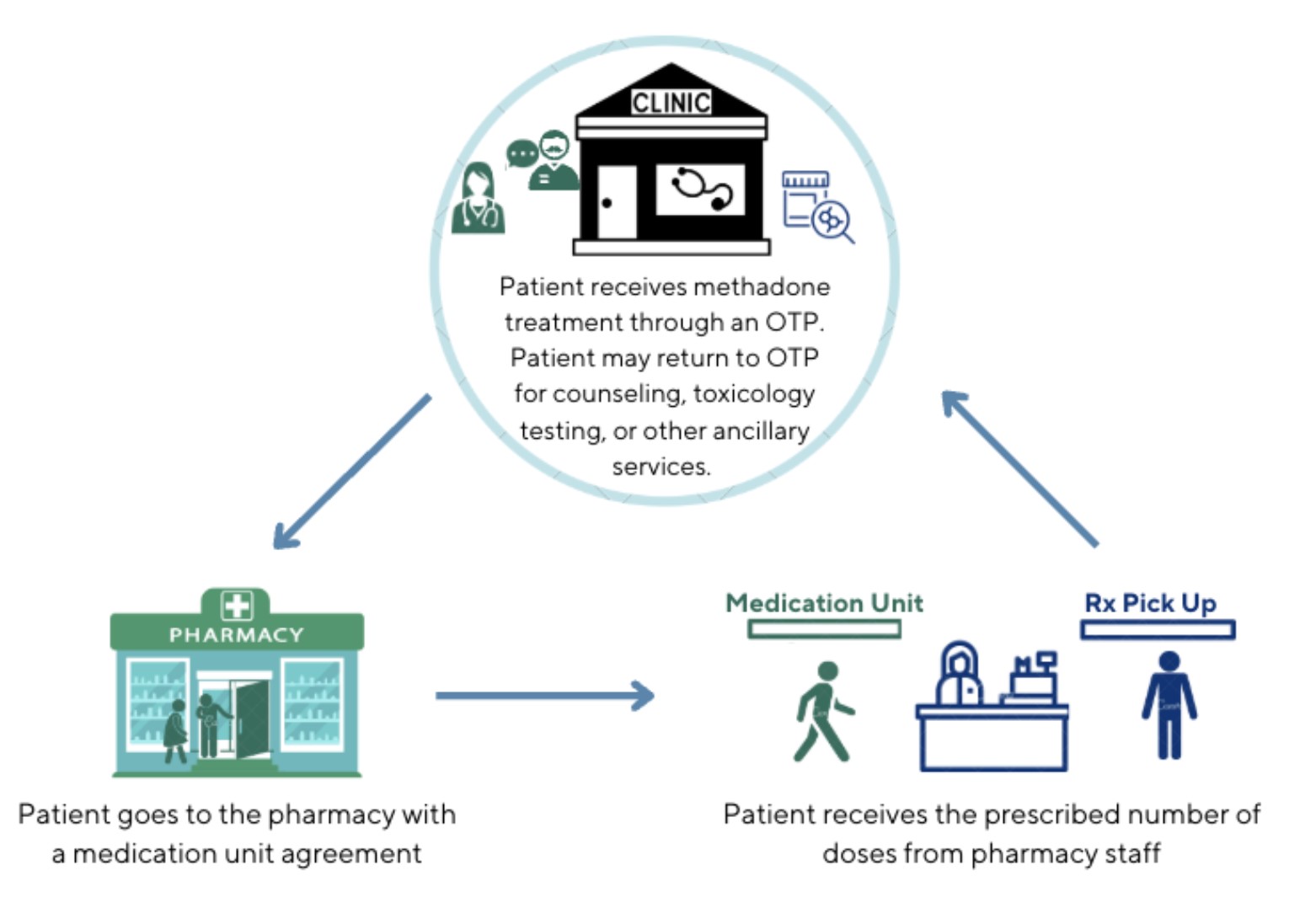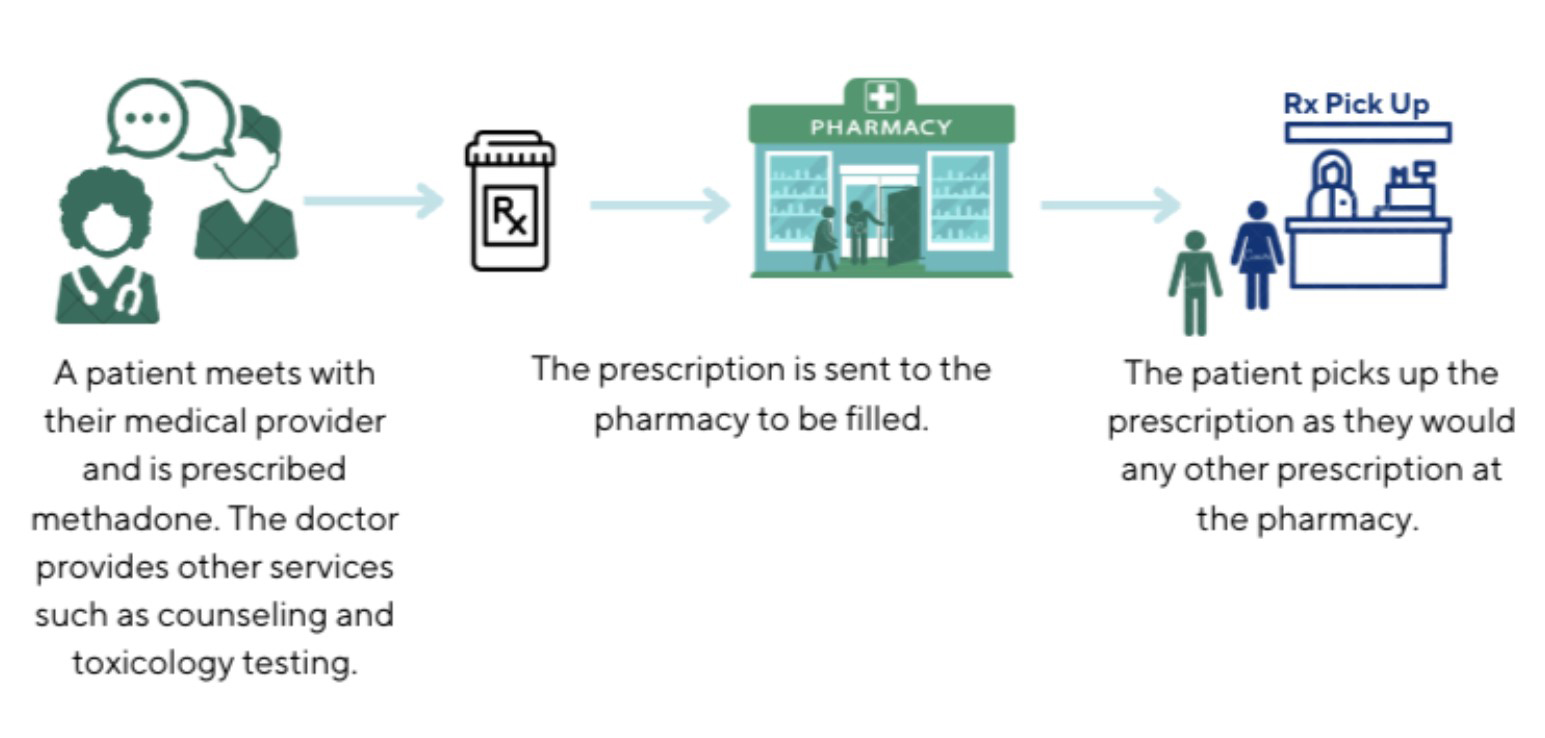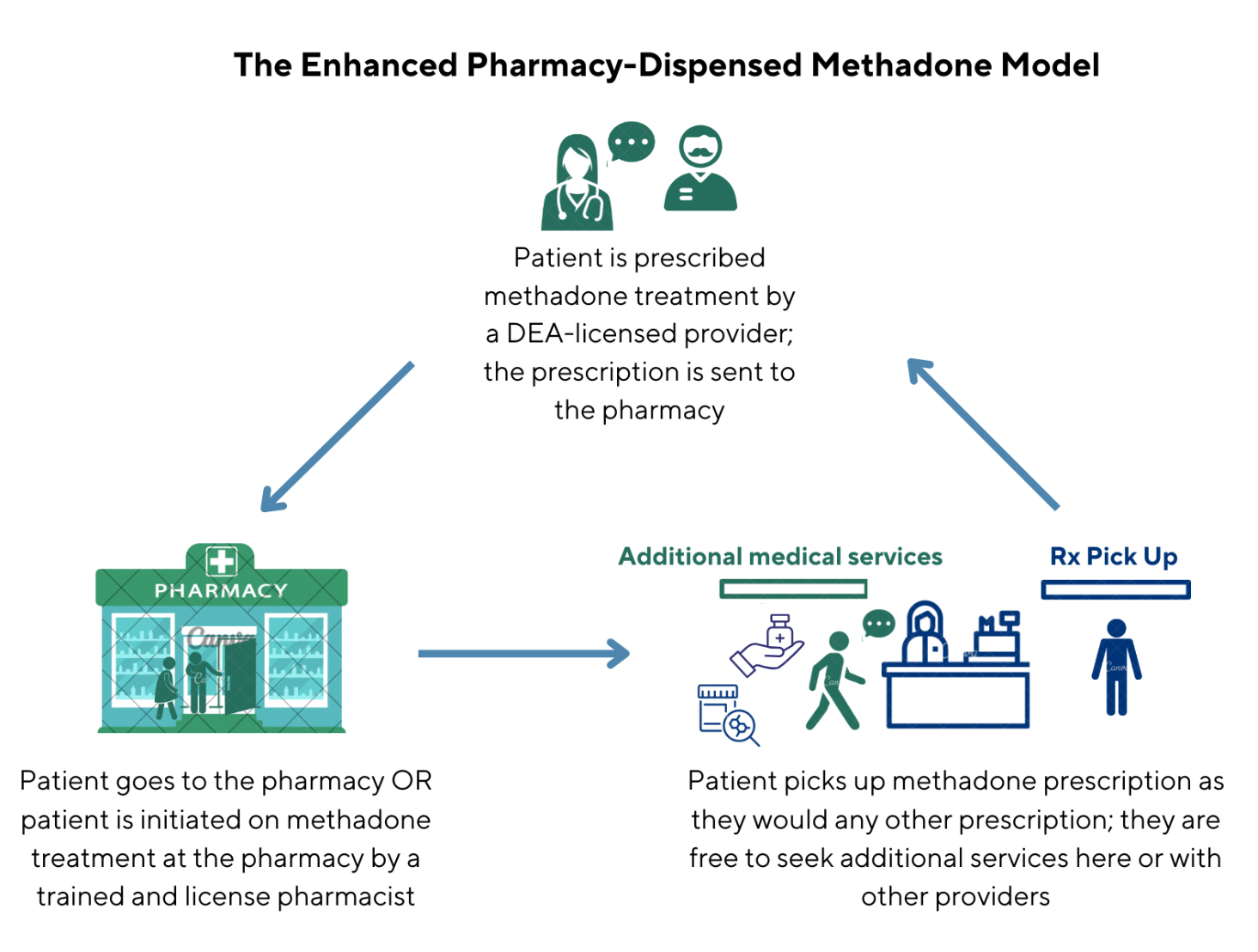
Methadone is one medication treatment for OUD (MOUD) with strong evidence for reducing overdose mortality.1–3 As a full agonist, methadone may provide more consistent relief of withdrawal symptoms, which is important for people using strong opioid like fentanyl, those who may be concerned about overdose risk with naltrexone,4 or people who may be struggling with starting typical regimens of buprenorphine.5
Federal laws and regulations can make accessing methadone challenging. Currently, only opioid treatment programs (OTPs) can provide methadone for OUD, with limited exceptions.6 There are only ~2,100 OTPs in the US; 80% of counties and the entire state of Wyoming lack even one.7,8 Patient advocacy groups, clinicians who care for people with OUD, professional organizations, scientists, and policymakers have called for offering methadone in community pharmacies as an alternative to the current delivery system.9–13 Pharmacies are the most accessible healthcare environment in the US and are well-suited to offer overdose prevention efforts including MOUD.14 There are logistic, legal, and financial considerations to offering methadone for OUD in community pharmacies in the US.
With funding from the Pew Charitable Trusts, we conducted a project with the goals of understanding the possibilities and barriers to increasing access to methadone for OUD via pharmacy-based treatment, identifying the policy changes required to facilitate pharmacy-based methadone treatment, and developing business models for pharmacy-based methadone treatment. Our project focused on three models of pharmacy-based methadone treatment:
Model 1: Pharmacy-Based Medication Unit
Model 2: Pharmacy-Dispensed Methadone
Model 3: Enhanced Pharmacy-Dispensed Methadone
Model 3: Enhanced pharmacy-dispensed methadone, where methadone is dispensed at the pharmacy like other controlled substances and pharmacists provide needed clinical services



